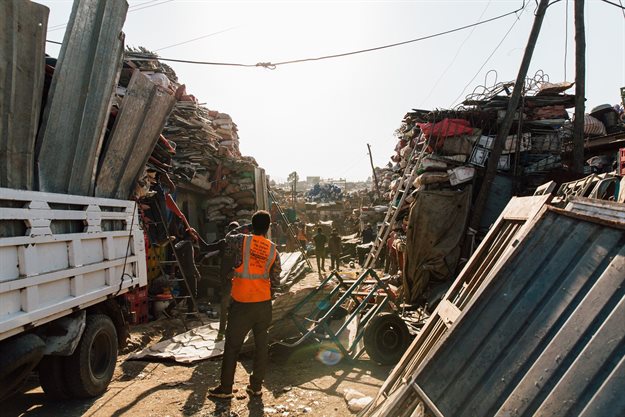ITAC introduces changes to steel industry prices
In an effort to improve access to affordable scrap metal for the domestic steel and other metal producing industry, the International Trade Administration Commission (ITAC) has introduced changes to the Price Preference System (PPS).

Image source: www.pexels.com
|
This comes after the commission finalised an initial investigation into the supply of scrap metal as an input to the domestic steel producing industry.
In a statement on Monday, 5 October, the commission, which is an agency of the Department of Trade and Industry (dtic), said the PPS was first introduced in 2013 to promote the affordable supply of scrap metal to domestic steel and other metal makers.
Scrap dealers were required to offer scrap to the domestic consuming industry first at a prescribed discount to international prices, before it could be exported to other markets.
Scrap metal is a critical input in the production of steel products by mini-mills and foundries.
“During the Covid-19 National State of Disaster, the dtic received representations from the domestic consuming industry that the PPS was not achieving the intended objectives, causing severe harm to the industry and affecting its recovery from the effects of the Covid-19 global pandemic.
"The representations requested that urgent action be taken to remedy the situation, retain jobs and capability in the metals sector,” ITAC said in the statement.
On 3 July 2020, dtic minister Ebrahim Patel issued a Trade Policy Directive to ITAC to investigate, and if necessary, make changes to the PPS to address the shortage in affordable good quality scrap metal.
“During the period of the investigation, the administration of the PPS and the export of scrap metal was suspended, subject to exceptions, to address some of the immediate challenges with affordable access for domestic steel and other metal makers,” the department said in a statement.
ITAC has completed its investigation and received comments from a number of interested persons and key firms in the sector.
Following considerations of the concerns expressed, ITAC decided to make a number of changes to the PPS, which have been implemented with effect from 2 October 2020.
Changes
Some of the key changes made by ITAC to the PPS include:
- Imposition of an additional discount of 10% where domestic consumers are located in inland provinces and scrap metal is located at the coast to account for transport costs;
- The right for domestic consumers to weigh and inspect the materials to ascertain that material delivered is the same quality, type and weight as agreed to when the offer was made and concluded, and the right to claim reasonable compensation for costs incurred where quality, type and weight differ from what was agreed;
- Increased surveillance by ITAC to ensure that materials (quality, grades and quantities) comply with the approved permit, including the right to take legal action for any misrepresentation from sellers; and
- Ensuring that scrap dealers have adequate facilities for the access, loading and weighing of scrap, failure to provide these will be seen as an impediment and constitute grounds for refusal of a permit application.
Ensuring affordability
The department said amendments to the guidelines are intended to improve the domestic consumers’ access to affordable scrap metal and address the concerns raised by the industry in the interim period.
The introduction of an export tax as a long-term policy measure is currently under consideration.
“Ensuring the affordable supply of scrap metal to the domestic steel industry is critical. The department will thus monitor the supply of scrap closely and the effectiveness of the amendments to the PPS. In the event that the affordable supply of scrap metal to domestic steel makers remains constrained, further measures will be considered by government.
“The South African government continues to put in place measures to support the steel and metals industry. A masterplan for the sector is currently under development through consultation with industry stakeholders, including manufacturers and organised labour,” the department said.
